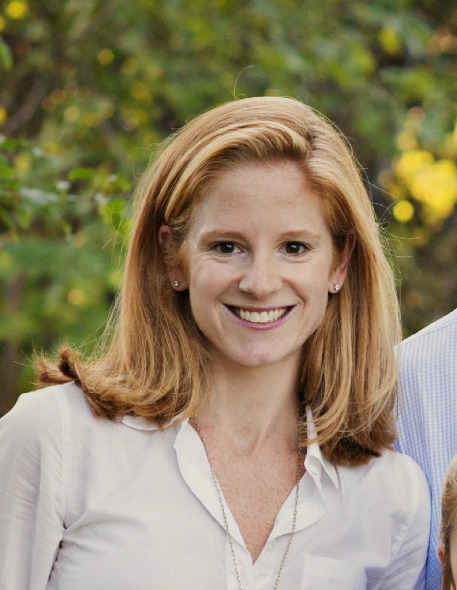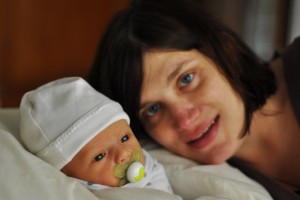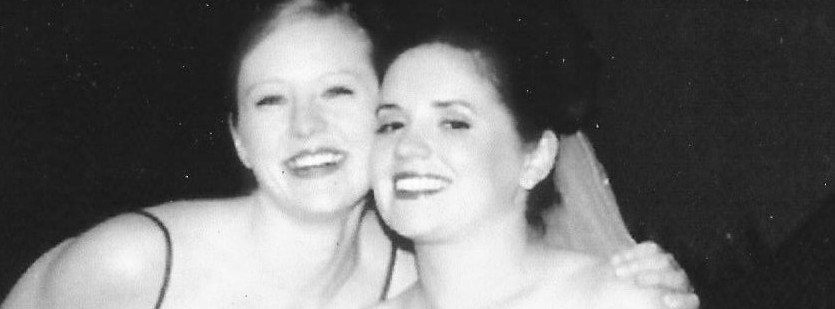A Friendship Forged in the Crucible
 We are more than delighted to be featuring Lindsey Mead as this week’s HerStories contributor. Jessica first became a fan of Lindsey’s writing on the Huffington Post, and then started reading her blog, A Design So Vast, obsessively. Her writing is emotional, inspiring, reflective, poetic, and fiercely intelligent. Today she tells us about her connection to another mother formed during the most challenging moments of new motherhood.
We are more than delighted to be featuring Lindsey Mead as this week’s HerStories contributor. Jessica first became a fan of Lindsey’s writing on the Huffington Post, and then started reading her blog, A Design So Vast, obsessively. Her writing is emotional, inspiring, reflective, poetic, and fiercely intelligent. Today she tells us about her connection to another mother formed during the most challenging moments of new motherhood.
I recently had lunch with a friend who walked beside me through some of the most difficult months of my life. We lost touch for several years, and now see each other only sporadically. But even without frequent contact, we are close and always will be.
Our bond is a formidable alloy forged in the crucible of bewilderment, fear, and wonder known as postpartum depression. We met shortly after our first children were born (5 weeks apart, and we improved that with 2nd children born only 4 weeks apart). We instantly recognized in each other both a spirit struggling in the dark woods of despair and a glimmer of our similar, joyful former selves. We knew that not only did we have a lot in common right this second, but we had had a lot in common in the past and would again in the future.
And we were right. It was such a relief to have a friend like her, a friend who was so unabashedly fun, even in a time when we had both lost hold of anything resembling fun. She made me laugh, long and loud, every day. We experienced together for the first time the pleasures and trials of working part time, of growing babies and pureeing vegetables, of nursing bras and drool-soaked shirts. I remember sending her post-it notes with hand-drawn pictures and funny messages on them, and that we both found “If you aren’t living on the edge, you are taking up too much room” to be the height of hilarity.
Underneath the fun, there was also deep connection and identification. I’ve never had a friend with whom I connected so quickly; it felt as as though she was the person I’d been looking for for so many years. We had so many points of connection, so rapidly, and the ease with which we fell into each others’ lives is something I still find notable.
I wrote her a letter on her son’s first birthday and she gave me a photo album with pictures of us and our children when Grace turned one. We learned, together, to be mothers, and we fought, more desperately than our playful and tipsy exteriors let on, to maintain some sense of ourselves as individuals as we made this most essential passage.
We strolled for hours, we wore matching tank tops, we went to yoga, we sang along loudly to Bruce Springsteen at Fenway, we drove golf carts drunk in the dark, and we skinny-dipped in the ocean, clothing and inhibitions shed together on the beach. It was tangible, the gradual sense of lightness that came over each of us as we climbed out of the dark place and towards the light. Our journeys were independent but we made them side by side.
We shared wine and diapers and clothing and birthdays and tears and emails and phone calls and pedicures and friends and stories and a celebratory lunch for our second pregnancies. I buckled her son into her mother’s car for his first night away from her, and brought her dinner and a bottle of wine the day she brought her second child, a daughter, home from the hospital. The last person I saw before having my second child, a son, was her husband, when he brought over a folding bed that we borrowed for a night nurse. I cried into her voicemail when I heard her second baby was a girl and cried reading her thoughtful message after my son’s nut allergy diagnosis.
Our roots are deeply intertwined. Whenever we’re together I can feel past and present – and future – overlapping like soft waves on a beach.
The tide goes in, the tide goes out.
One minute we are holding each other’s babies in a slew of side-by-side photographs and the next we’re watching those children barrel down a black diamond ski slope ahead of us. Those children, now 10 years old, were each others’ first friends, and their lives beat like a pulse through all my memories of this unique friendship. Though they don’t know each other anymore, their bonds endure, even if only in my mind: it makes me irrationally happy that they were, unbeknownst to each other, Harry Potter and Hermione Granger the same Halloween.
She holds in her hands so much of that first intense year of motherhood, when we were so tired we felt we had sand in our eyes, when we were so disoriented and shell-shocked we thought we would never stand upright again. And now that we are, we talk all the time about that time apart from real life. We miss the wild magic of those days.
Lindsey Mead is a mother, writer, and financial services professional who lives in Cambridge, Massachusetts with her husband, daughter, and son. Her work has been published and anthologized in a variety of print and online sources. She writes daily at A Design So Vast and can be found on Twitter (@lemead).
















